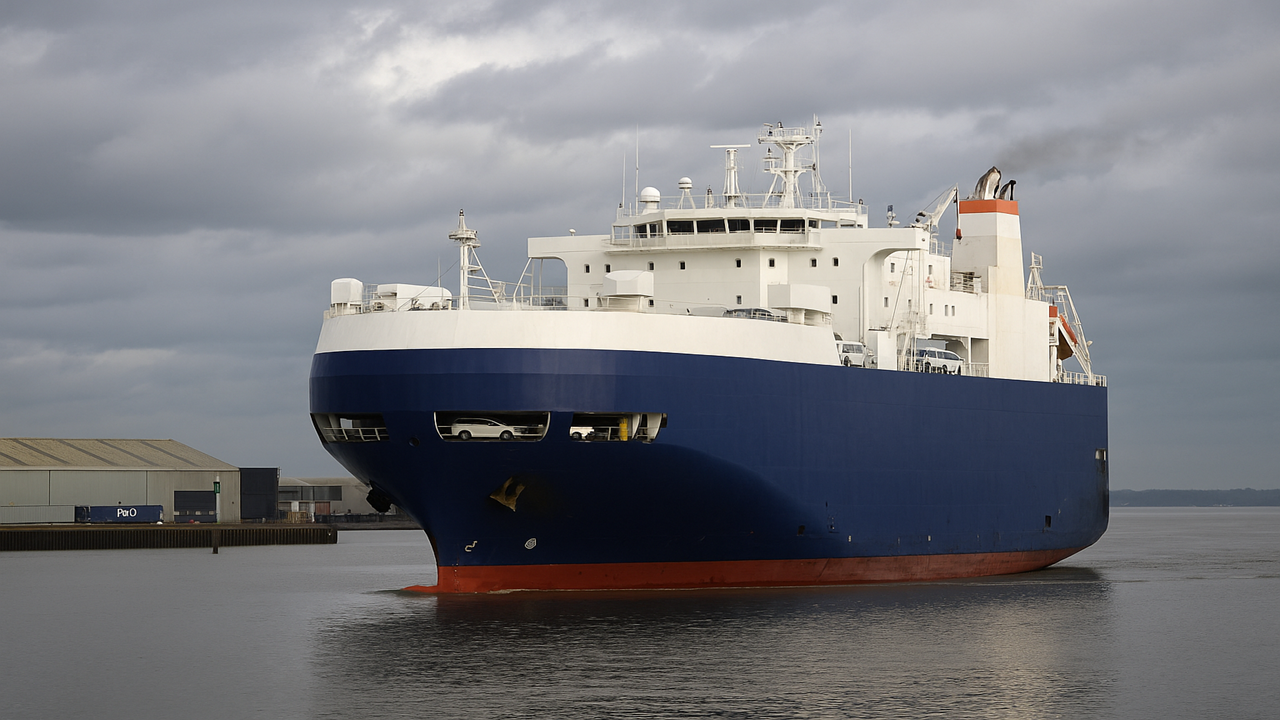Jaguar Land Rover Resumes U.S. Shipments After Trump Tariffs Pause
Jaguar Land Rover has resumed shipping vehicles to the U.S. after a month-long pause prompted by Trump’s 25% auto import tariff. The move eases dealer shortages but reflects broader trade policy challenges facing global automakers.

After a tense month-long pause, Jaguar Land Rover (JLR) has restarted shipments of its British-made vehicles to the United States, signaling cautious optimism amid ongoing trade tensions sparked by former U.S. President Donald Trump’s tariff policy. The company, owned by India’s Tata Motors, began moving vehicles out of Britain again this past Wednesday, according to a report by The Times.
The halt in exports, announced in early April, was JLR’s calculated response to the imposition of a 25% tariff on imported cars and light trucks, which went into effect on April 3. The automaker’s leadership had cited concerns over how the steep levy would impact profitability and pricing for U.S. consumers. “We needed time to assess the long-term implications of this policy and explore ways to mitigate its cost impacts,” a senior JLR executive reportedly told The Times.
For nearly a month, showrooms in the U.S. saw dwindling supplies of popular models like the Range Rover Sport and Jaguar F-Pace as dealers anxiously awaited updates from the company’s Coventry headquarters. Industry analysts speculated whether JLR might shift more production to overseas plants or pass the tariff burden onto consumers.
The resumption of shipments suggests that JLR may have reached a temporary solution or at least enough clarity to resume deliveries. However, it’s still unclear whether the company absorbed part of the tariff costs, adjusted vehicle pricing, or brokered a supply chain workaround. “Restarting shipments doesn’t mean the tariff issue is solved,” said an automotive trade analyst, Caroline Adams. “It’s a stopgap measure to maintain market presence while they work out a sustainable strategy.”The pause and subsequent restart also highlight the growing complexity for automakers operating across global trade borders. With Britain facing its post-Brexit trade adjustments and the U.S. tightening import rules, JLR’s move reflects a broader challenge for legacy manufacturers dependent on cross-Atlantic supply chains.
For U.S. dealers, the shipment restart comes as a relief. “We were running out of key models,” said Mark Reynolds, a Jaguar dealer in California. “Customers were frustrated, especially those who ordered months ago.” Buyers might still see slight price adjustments depending on how JLR distributes the tariff-related costs, but experts believe the company is motivated to keep its U.S. lineup competitively priced amid stiff competition from German rivals.
While JLR has overcome this immediate supply hurdle, the long-term effects of heightened trade protectionism remain uncertain. The company’s next steps could involve rethinking production allocations, expanding non-U.K. assembly operations, or lobbying for policy exceptions. For now, customers can expect JLR models to return to U.S. showrooms, but whether this marks a full resolution or a reprieve is yet to be seen.










